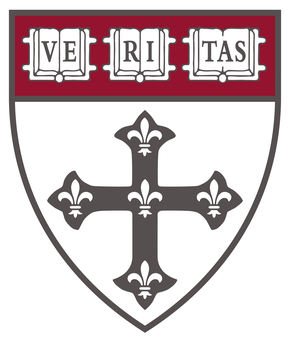
The Harvard T.H. Chan School of Public Health is the public health school of Harvard University, located in the Longwood Medical Area of Boston, Massachusetts. The school grew out of the Harvard-MIT School for Health Officers, the nation's first graduate training program in population health, which was founded in 1913 and then became the Harvard School of Public Health in 1922.
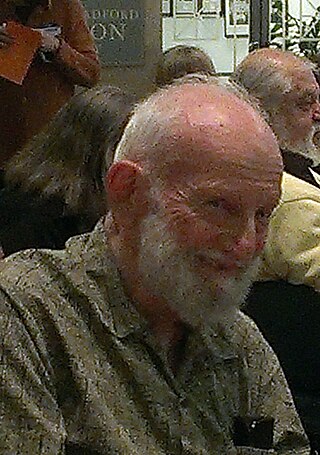
Richard Levins was a Marxist biologist, a population geneticist, biomathematician, mathematical ecologist, and philosopher of science who researched diversity in human populations. Until his death, Levins was a university professor at the Harvard T.H. Chan School of Public Health and a long-time political activist. He was best known for his work on evolution and complexity in changing environments and on metapopulations.
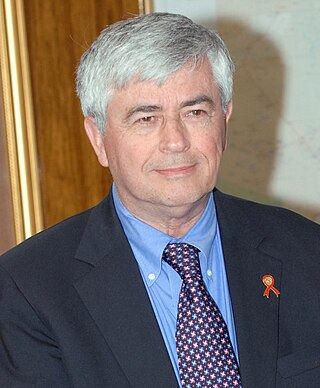
Myron Elmer "Max" Essex is the Mary Woodard Lasker Professor of Health Sciences, emeritus in the department of immunology and infectious diseases at Harvard University, chair of the Harvard T.H. Chan School of Public Health AIDS Initiative (HAI) in the department of immunology and infectious diseases, and chair of the Botswana–Harvard AIDS Institute in Gaborone, Botswana. Essex was one of the first to link animal and human retroviruses to immunosuppressive disease, to suspect that a retrovirus was the cause of AIDS, and to determine that HIV could be transmitted through blood and blood products to hemophiliacs and recipients of blood transfusions. With collaborators, Essex also provided the first evidence that HIV could be transmitted by heterosexual intercourse.

Daniel Isaac Wikler is an American public health educator, philosopher, and medical ethicist. He is currently the Mary B. Saltonstall Professor of Population Ethics and Professor of Ethics and Population Health in the Department of Global Health and Population of the Harvard T.H. Chan School of Public Health in Boston. He is Director and a core faculty member in the Harvard Program in Ethics and Health (PEH). His current research interests are ethical issues in population and international health, including the allocation of health resources, health research involving human subjects, organ transplant ethics, and ethical dilemmas arising in public health practice, and he teaches several courses each year. He is a fellow of the Hastings Center, an independent bioethics research institution.

Richard Alan Cash was an American global health researcher, public health physician, and internist. He was a pioneer of oral rehydration therapy for lethal diseases such as cholera. This simple, practical therapy is estimated to have saved over 50 million lives since.
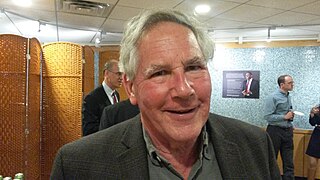
Norman Daniels is an American political philosopher and philosopher of science, political theorist, ethicist, and bioethicist at Harvard University and the Harvard T.H. Chan School of Public Health. Before his career at Harvard, Daniels had built his career as a medical ethicist at Tufts University in Medford, Massachusetts, and at Tufts University School of Medicine, also in Boston. He also developed the concept of accountability for reasonableness with James Sabin, an ethics framework used to challenge the healthcare resource allocation in the 1990s.

David Canning is a British economist. He is Richard Saltonstall Professor of Population Sciences and Professor of Economics and International Health at the Harvard School of Public Health. He holds a Ph.D. in economics from Cambridge University and is deputy director of the Program on the Global Demography of Aging. Before assuming his role at the Harvard School of Public Health, Canning held faculty positions at the London School of Economics, Cambridge University, Columbia University, and Queen's University Belfast, where he received his B.A. in economics and mathematics.
Marvin Zelen was Professor Emeritus of Biostatistics in the Department of Biostatistics at the Harvard T.H. Chan School of Public Health (HSPH), and Lemuel Shattuck Research Professor of Statistical Science. During the 1980s, Zelen chaired HSPH's Department of Biostatistics. Among colleagues in the field of statistics, he was widely known as a leader who shaped the discipline of biostatistics. He "transformed clinical trial research into a statistically sophisticated branch of medical research."

Michelle Ann Williams is a Jamaican-American epidemiologist, public health scientist, and educator who has served as the dean of the Harvard T. H. Chan School of Public Health since 2016.
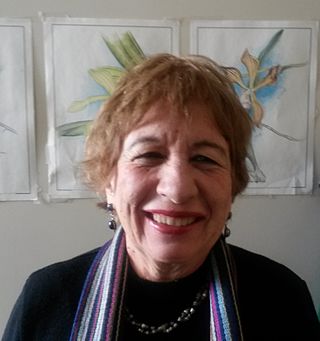
Cristina Possas de Albuquerque is a Brazilian public health scientist working with infectious diseases and emerging infectious diseases from an eco-social perspective.
Eric J. Rubin is an American microbiologist, infectious disease specialist, and is currently the editor-in-chief of the New England Journal of Medicine. He is also an adjunct professor of immunology and infectious diseases and was formerly the Irene Heinz Given Professor and chair of the department of immunology and infectious diseases at the Harvard T.H. Chan School of Public Health. His research laboratory works on Mycobacterium tuberculosis, nontuberculous mycobacteria (NTMs), and the development and application of bacterial genetics tools to study the fundamental biology of these pathogenic organisms. He holds an M.D. from the School of Medicine as well as a Ph.D. from the Graduate School of Biomedical Sciences at Tufts University.
Louise Marie Ryan is an Australian biostatistician. She is a professor of statistics in the School of Mathematical Sciences at the University of Technology Sydney, president-elect of the International Biometric Society, and an editor-in-chief of the journal Statistics in Medicine. She is known for her work applying statistics to cancer and risk assessment in environmental health.
Rebecca A. Betensky is a professor of biostatistics and chair of the department of biostatistics at New York University's School of Global Public Health. Previously, she was a professor of biostatistics at the Harvard T.H. Chan School of Public Health, where she directed the biostatistics program for the Harvard Clinical and Translational Science Center. She was also a biostatistician for Massachusetts General Hospital, where she directed the biostatistics core of the Alzheimer’s Disease Research Center.
Kaumudi Jinraj Joshipura is an Indian American Epidemiologist, Biostatistician, Dentist & Scientist. She is Adjunct Full Professor at Harvard T.H. Chan School of Public Health (HSPH) at Harvard University and NIH Endowed Chair and Director of the Center for Clinical Research and Health Promotion and a Full Professor at the University of Puerto Rico, Medical Sciences Campus. Her research work has been covered by global media including CNN, ABC, NBC, NHS, Newsweek, Nature, Telegraph, Japanese Journals and Japanese TV etc.

Sarah Merritt Fortune is an American immunologist. She is a Full Professor of Immunology and Infectious Diseases in the Department of Immunology and Infectious Diseases at the Harvard T.H. Chan School of Public Health.

Marc Lipsitch is an American epidemiologist and Professor in the Department of Epidemiology at the Harvard T.H. Chan School of Public Health, where he is the Director of the Center for Communicable Disease Dynamics. He has worked on modeling the transmission of Coronavirus disease 2019 (COVID-19).
Megan Blanche Murray is an American epidemiologist and an infectious disease physician. She is the Ronda Stryker and William Johnston Professor of Global Health in the Department of Epidemiology at the Harvard T.H. Chan School of Public Health.
Susan Redline is an American pulmonary specialist. She is the Peter C. Farrell Professor of Sleep Medicine and Professor of Epidemiology at the Harvard T.H. Chan School of Public Health.
Donna Spiegelman is a biostatistician and epidemiologist who works at the interface between the two fields as a methodologist, applying statistical solutions to address potential biases in epidemiologic studies.
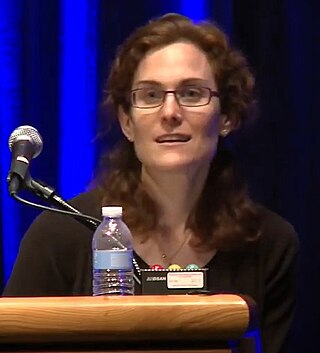
Wendy Sarah Garrett is an American microbiologist who is the Irene Heinz Given Professor of Immunology and Infectious Diseases at the Harvard Chan School of Public Health. She holds a joint position in the Departments of Medicine at Harvard Medical School.













